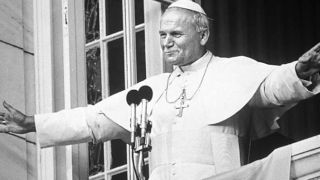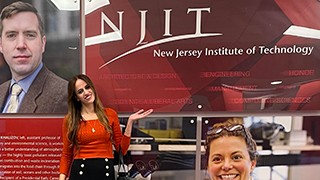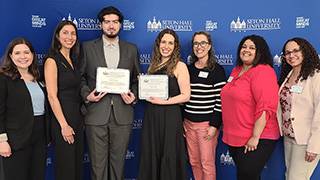Core II Classes are Covering the Science Unit - Seton Hall University
Thursday, March 3, 2022

In this text John Paul II addresses a group of scientists on the 350th anniversary of the publication of Galileo's famous publication about his astronomical discoveries, which showed that the universe was heliocentric, not geocentric. Though his conflict with the Church is notorious, John Paul II uses the opportunity to express how the Church has grown in understanding its relationship with science. He says, "…we should rejoice together that the world of science and the Catholic Church have learned to go beyond those moments of conflict, understandable no doubt, but nonetheless regrettable. This was the result of a more accurate appreciation of the methods proper to the different orders of knowledge and the fruit of bringing to research a more rigorous attitude of mind." Collaboration and respect for each other’s disciplines is what the Holy Father called for at this landmark event.
The key to both forms of study is respect for the search for truth, which is, or should be, deeply valued by any honest researcher or theologian. He says, "It is certain that science and faith represent two different orders of knowledge, autonomous in their processes, but finally converging upon the discovery of reality in all its aspects, which has its origin in God” (referring to a talk given by himself, "Discourse in Cologne Cathedral, Nov. 15, 1980, no. 8, referenced by Osservatore Romano, November 4, 1992, p. 2). Just as the Church must be careful of being suspicious of science (as in the case of Galileo), so science must respect the ethical and spiritual guidance offered by theology and other humanistic study. Science without ethics can lead to great evil, whereas science ethically and even spiritually informed can lead to the greater good of humanity. He says, "You know that a moral transformation is needed if we want the scientific and technical resources of today’s world to be effectively placed at the service of man."
Pope Francis in his Laudato Si and elsewhere talks about the moral imperative of considering the impact of technological and other advances upon the environment and particularly upon marginalized peoples. Coming full circle, this ethical and spiritual response to the climate crisis leads the Holy Father to encourage us to listen to science as it speaks to evils that are being compounded by lack of action. The scientists are warning us, and the head of the Catholic Church is using theology to give their warnings a moral imperative, as he links his arguments to Scripture and to the teaching of St. Francis, who wrote his beautiful Canticle of the Creatures, beginning with the phrase "Laudato Si" (Praise be to You). As science and faith work together, we can learn how to repent of the evils done in the name of advancement to our mother earth and use science correctly to address the problems created by these evils. Lent is a good time to think of how to change and work together in a collaborative and peaceful way.
Categories: Faith and Service





